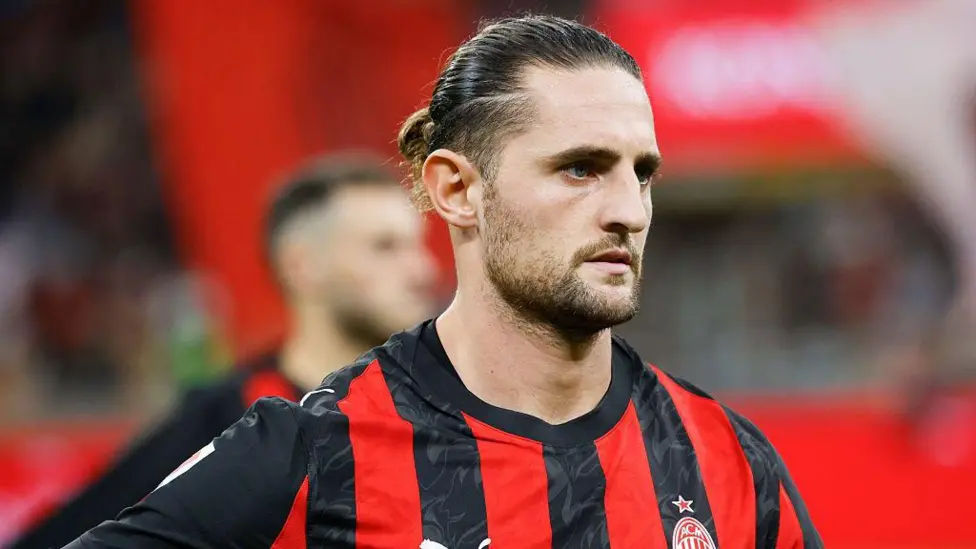Serie A chief executive Luigi de Siervo has criticised Adrien Rabiot, insisting the AC Milan midfielder should “respect his employer” after publicly opposing plans for Italian league matches to be staged overseas.
Rabiot, who joined Milan from Marseille last month, sparked debate after describing Serie A’s plan to host a league fixture in Australia as “completely crazy” and “really absurd.”
Milan are scheduled to play Como in Perth this February as part of Serie A’s global expansion efforts. Meanwhile, Spain’s La Liga has also approved a Villarreal versus Barcelona clash in Miami later this year — the latest in a growing trend of exporting domestic games abroad to boost international reach.
In an interview with Le Figaro, the 30-year-old France international said, “There’s a lot of talk about schedules and player health, but this all seems truly absurd. It’s crazy to travel so many miles for a match between two Italian teams in Australia. We have to adapt, as always.”
Those remarks prompted a firm response from De Siervo, who defended the decision and rebuked the midfielder’s stance.
“He’s right, but Rabiot forgets, like all footballers who earn millions of euros, that they are paid to carry out an activity — to play football,” De Siervo said after a Serie A assembly meeting in Rome.
“He should have respect for the money he earns, complying with the wishes of his employer, Milan, who accepted and pushed for this match to be played abroad.”
The move to stage competitive domestic games outside Europe has faced resistance from players, supporters, and football’s governing bodies. On Monday, UEFA confirmed it had “reluctantly” approved two European league fixtures abroad — Milan versus Como in Australia and Villarreal versus Barcelona in the United States.
However, UEFA president Aleksander Ceferin reinforced his opposition to the concept, warning that European football risks “breaking” its bond with fans if clubs continue chasing commercial growth at the expense of tradition.
“Football is not just about balance sheets. It’s not just entertainment. It’s life in our communities, the streets, the clubs, and the fans which shape it,” Ceferin said during the European Football Clubs assembly in Rome.
“If we pull it too far away from those roots, we risk breaking it.”
Ceferin emphasised that football’s unifying role must not be compromised.
“In uncertain times, football is our anchor and gives us a common ground, a joy we can share. When Europe faces great political, economic, and social challenges, we need something that holds us together. Football has that power and we must preserve it.”
UEFA said it had consulted stakeholders and found “widespread lack of support” for the overseas fixtures, echoing disapproval from leagues, clubs, players, and fans alike. Nonetheless, the governing body admitted its ability to block the games was limited due to FIFA’s “unclear” regulatory framework.
FIFA established a working group last year to examine the implications of playing competitive domestic matches abroad but has yet to deliver firm guidelines.
In a separate address, Ceferin also reaffirmed UEFA’s strong stance against a proposed European Super League, calling it “an attack from outside” seeking to reshape the sport for profit.
“UEFA will never and would not organise a competition for 12 clubs only,” Ceferin said. “UEFA wants inclusion — that the dream stays alive. We will make sure our club football remains open and that everyone has a chance to win the best competitions.”
The renewed debate over overseas matches adds to mounting tensions between football’s governing institutions, clubs, and players — a conflict balancing financial ambition against the game’s cultural and community roots.
For Rabiot, whose outspoken nature has long drawn headlines, his latest comments place him at the centre of another controversy — one that highlights football’s ongoing struggle between commercial growth and sporting authenticity.



